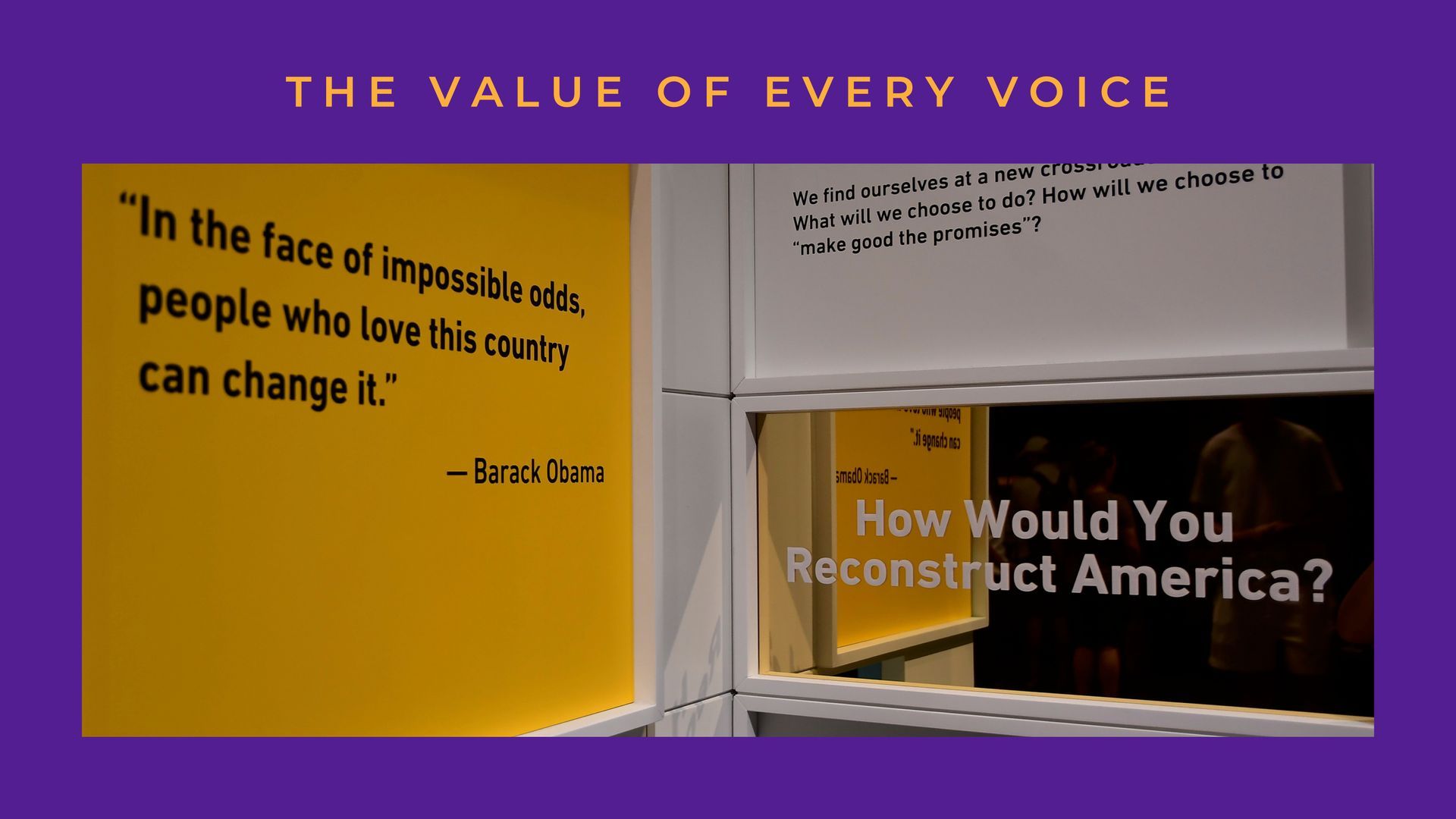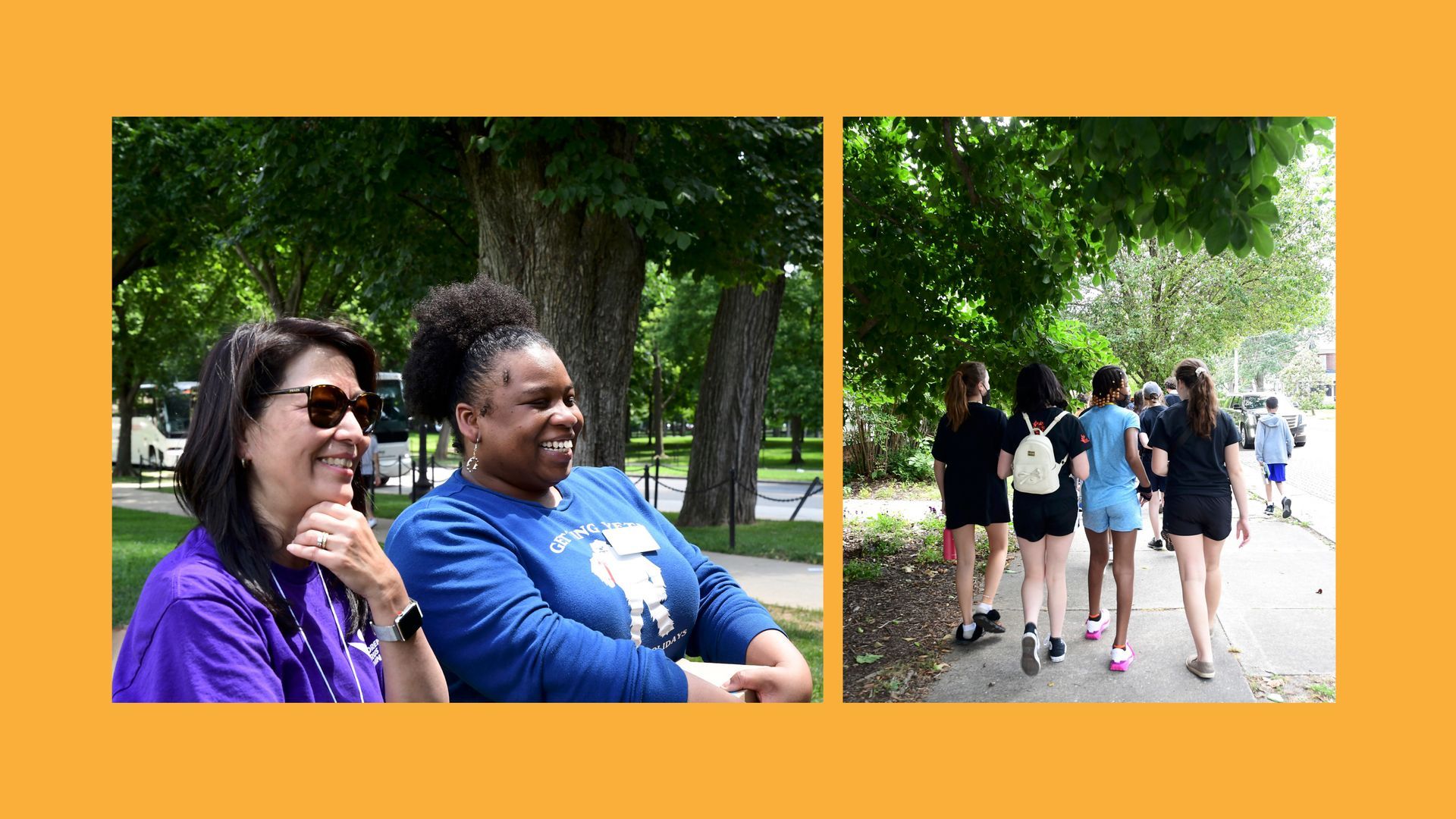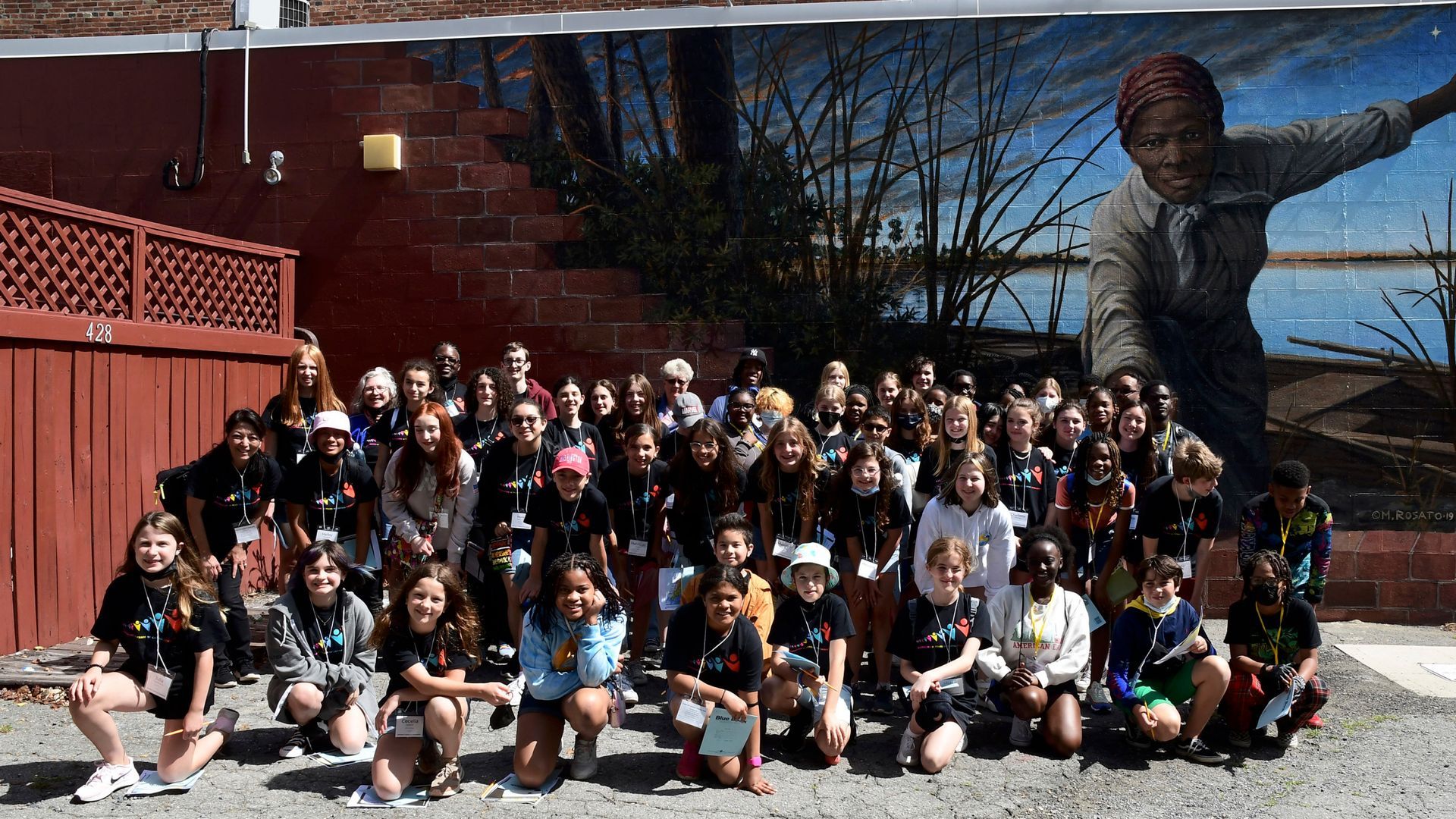CCW's Mission in "Stand Up": The Value of Every Voice
By CCW's Executive Director, Betsy Bates
We want to close out and commemorate Black History Month with a week of reflections on last summer’s Stand Up: Harriet Tubman Tour. This is the fourth of five posts.

Tubman's story is a testament to the impact of one person's actions, and the necessity of building a network where every person is important and can contribute to something greater than oneself. There is real power in cooperation. This is fundamental to choral singing. Every voice is important. You cannot have a chorus by yourself.
We asked the students to find the Harriet in themselves and think about how they can enact change.
They were asked:
- "If Harriet Tubman were here to give us advice today, what advice would she give us?”
- "I can make the world a better place today by ..."
Here are some of their reflections:
- Find the "defender," the Harriet, in ourselves (anonymous)
- Stand up for what's right (many)
- Fight for what you believe in (many)
- Have the willingness to learn (CSD)
- Listen to voices that are usually talked over or ignored (anonymous)
- Do good whenever you can (CCW)
- Take it upon yourself to change the situation in front of you (CCW)
- We have more agency than we think we do (CCW)
- Do what you can to make a difference (CCW)
The Choir School students also had many meaningful and personal reflections. One Choir School alum who was on the tour and participated as a song leader, poignantly said: “I am the hope and the dream of the slave.”
CSD Director of Music Arreon Harley-Emerson shared that his kids were empowered by the narrative of the enslaved as being not only strong, but smart. They were resourceful and they survived. They were stolen, did not know the language, and yet they tricked their captors and escaped to freedom.

We left Philadelphia with full hearts, new friends and colleagues, and inspired to revisit this tour in a year or two to keep Harriet's story and the music of the freedom seekers alive. There is more work to do - to continue asking important questions, to face our discomfort, to question our assumptions, to make more music together, … to improve our stepping!
As one chorister noted, we can never really understand another person's experience, but we must try.


